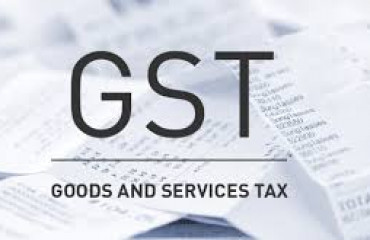
This is the fifth time that GST revenue collection has remained above the ₹1.6 trillion mark
This is the fifth time that GST revenue collection has remained above the ₹1.6 trillion mark
 Premium
PremiumNew Delhi: Central and state governments collected ₹1.65 trillion in Goods and Services Tax (GST) revenue in July, an improvement of 11% from the year-ago period, official data showed on Tuesday.
This is the fifth time that GST revenue collection has remained above the ₹1.6 trillion mark, said a statement from the finance ministry. The government's estimate for monthly average collection this fiscal is ₹1.65 trillion.
The government collected ₹41,239 crore by way of integrated GST (IGST) and ₹840 crore by way of GST cess on imports. After settlement for inter-state sales, the Centre collected ₹69,558 crore and states collected ₹70,811 crore as their respective shares of GST revenue in July, the finance ministry statement said.
In July, revenue from domestic transactions (which includes import of services) was 15% higher than the revenues from these sources in the same month last year, the statement said.
Among large state economies, Punjab, Haryana, Delhi, Uttar Pradesh, Maharashtra, Karnataka, and Tamil Nadu reported double-digit revenue growth. While Delhi witnessed a 25% annual improvement in GST revenue in July at ₹5405 crore, Uttar Pradesh reported a 24% jump in revenue at ₹8802 crore. While Maharashtra reported an 18% improvement in revenue collection at ₹26,024 crore, Karnataka reported a 17% jump at ₹11,505 crore. Tamil Nadu reported ₹10,022 crore GST revenue collection in July, an improvement of 19%. Gujarat, however, reported only a 7% revenue growth in July.
GST revenue receipts in the first month of the second quarter are the second highest revenue collection this year so far after the record collection in April of ₹1.87 trillion. After brisk inventory clearance at the end of the financial year, companies pause in the initial months before gearing up their shipments in the subsequent months.
Abhishek Jain, partner and national head of indirect tax at KPMG said that with the approaching festive season, this cheer is expected to only increase.
Experts also pointed out higher reporting requirements as a factor contributing to tax buoyancy. "The progressive reduction in the e-invoicing turnover limits accompanied by the large increase in number of statewise GST audits has led to all businesses becoming more GST compliant leading to increasingly stable GST collections month after month," said MS Mani, partner, Deloitte India.
